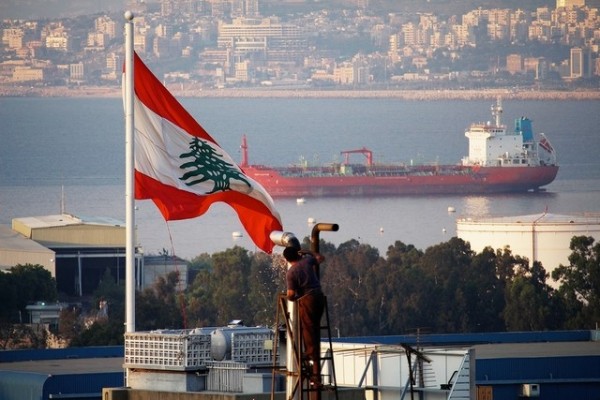
Despite the war raging on Syria’s side of the demarcation line, until early this year the crossing had remained busy. Before the Lebanese government made its refugee policy more restrictive, severely cutting down the number of refugees now allowed into the country, Lebanon sometimes saw thousands of Syrian refugees entering every day. And in the other direction, hardened lorry drivers would haul Lebanese goods on the long and potentially dangerous route through Syria to Jordan, Iraq and the Arabian Gulf.
But when Jabhat Al Nusra and Free Syrian Army units captured the Nassib border crossing between Jordan and Syria in April, Lebanon was left without an overland route into Jordan, Iraq and the Gulf.
The country’s overland exports have now dwindled to a trickle, with goods only reaching territory held by president Bashar Al Assad’s government as Syria — and now Lebanon — have turned into virtual islands.
Before the closure of the Nassib crossing, roughly a quarter of Lebanon’s total exports left the country overland, according to Marwan Barakat, chief economist at Bank Audi. But during the second quarter of this year — which followed the crossing’s closure — just 8.6 per cent of the country’s exports left this way.
Abu Mohammed, a Syrian lorry driver from Aleppo, was resting by his vehicle at the border last month after crossing into Lebanon. He used to haul goods from Lebanon and Syria to the Gulf, making up to US$2,000 (Dh7,345) a month. Now, he says, he earns half that amount.
“I’m barely surviving,” he said. “We [his family] barely have enough to eat. We have nothing extra.”
These days, Abu Mohammed only transports goods between Lebanon and regime-held areas inside Syria. On more dangerous roads — such as the one between Damascus and Homs — he travels in convoys with other lorries, paying between $100 and $150 per trip in protection money for government troops to escort the vehicles.
Despite this, however, Abu Mohammed says his situation is better than that of other lorry drivers who have not been able to survive the closure of the borders. “Some lorries are just parked with no business,” he said.
Lebanon’s agricultural industry has been hit especially hard by the border closures. With 65 per cent of Lebanese produce exports passing through the Nassib crossing before its closure, according to Mr Barakat, farmers are struggling to survive with the overland route gone.
Ahmed Hanniyeh, a farmer in the Bekaa Valley town of Taraya, said his profits are down 70 per cent because of the war in Syria. The war had driven profits down before, but the closing of the Nassib crossing was a death blow.
“The potatoes are still in the ground. We’re not even bothering to pick them,” he lamented at his farm last month.
Mr Hanniyeh is shipping some of his produce to Gulf markets by sea in refrigerated containers, but says this is expensive and that some food still spoils before it reaches its destination.
Lebanon has never been isolated as badly and for as long as now — even when war raged here — and Mr Hanniyeh is nostalgic thinking back to past conflicts.
“The civil war was better, it was the best business during the war,” he said. “Money was everywhere. We had electricity, we had everything. Now we don’t even have water. We can’t afford generators to pump water into the land because it is so expensive.”
Meanwhile, with lorries no longer able to make the route from Lebanon to the Gulf, exports from Beirut’s airport and port have stepped up.
Data from the International Chamber of Navigation, the body representing 45 shipping agencies in Beirut’s port, shows that the number of containers exported through the port jumped from 5,481 in June of last year to 9,920 in June of this year — an increase of 81 per cent.
Much of the increase in shipping activity is due to agricultural products shipped abroad in refrigerated containers. In June last year, 2,576 refrigerated containers were exported from the port, while in June of this year, 4,582 such containers were exported.
In August, the Lebanese government approved a $21 million treasury loan to the Investment Development Authority of Lebanon — a government agency that promotes investments in Lebanon — so that the body could subsidise farmers whose agricultural products are exported by sea to Jordan and the Gulf. But farmers complain that even if their applications to receive a subsidy are approved, it will not undo the damage of losing the overland export route through Syria.
Mr Barakat said exports from Beirut’s airport were up 28 per cent in the first half of 2015 compared to the same period in 2014.
“However, this has not totally compensated for the land route forgone,” he said. “The decline of land exports has been more important than the increase in exports at the port and airport.”
THE NATIONAL

Leave a Reply
You must be logged in to post a comment.